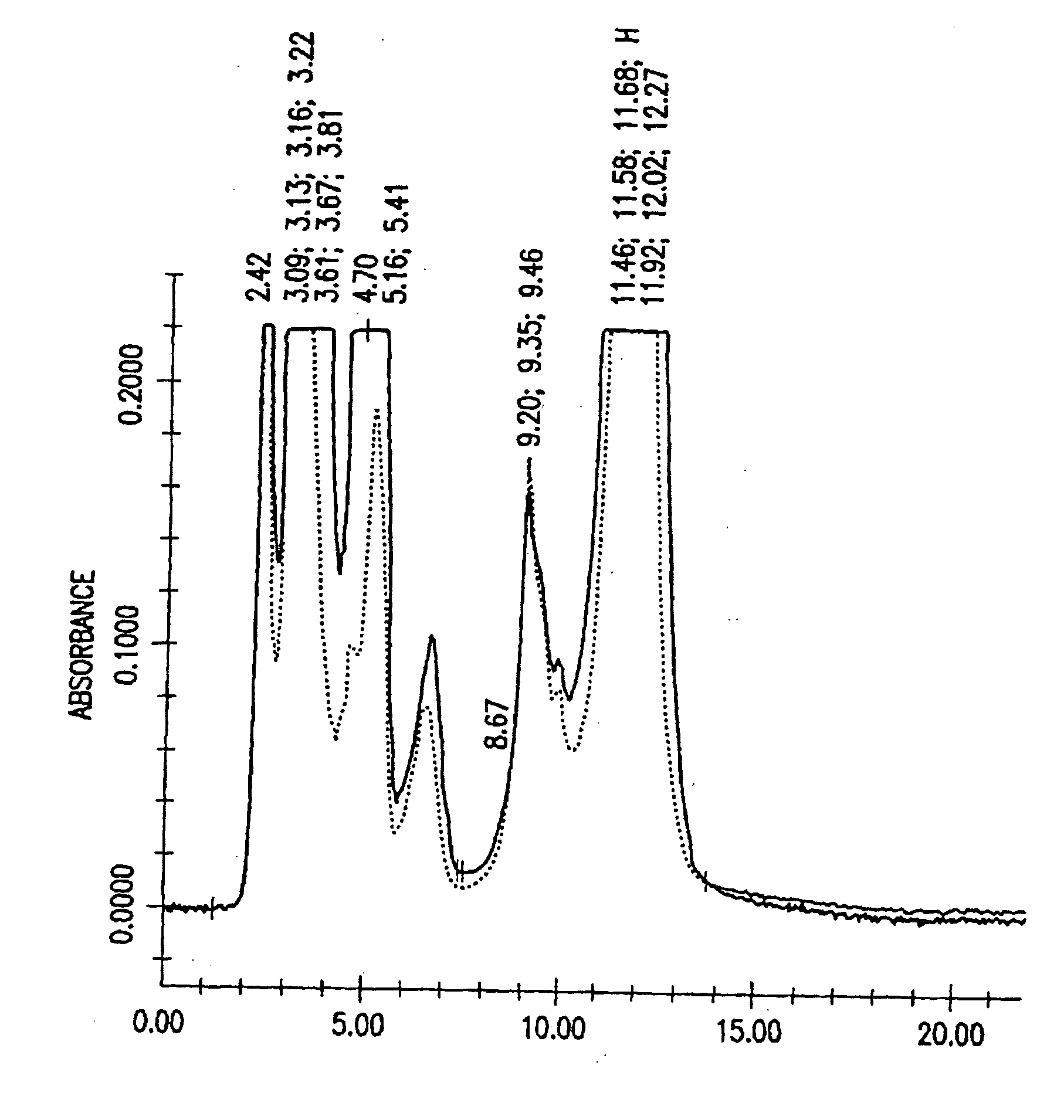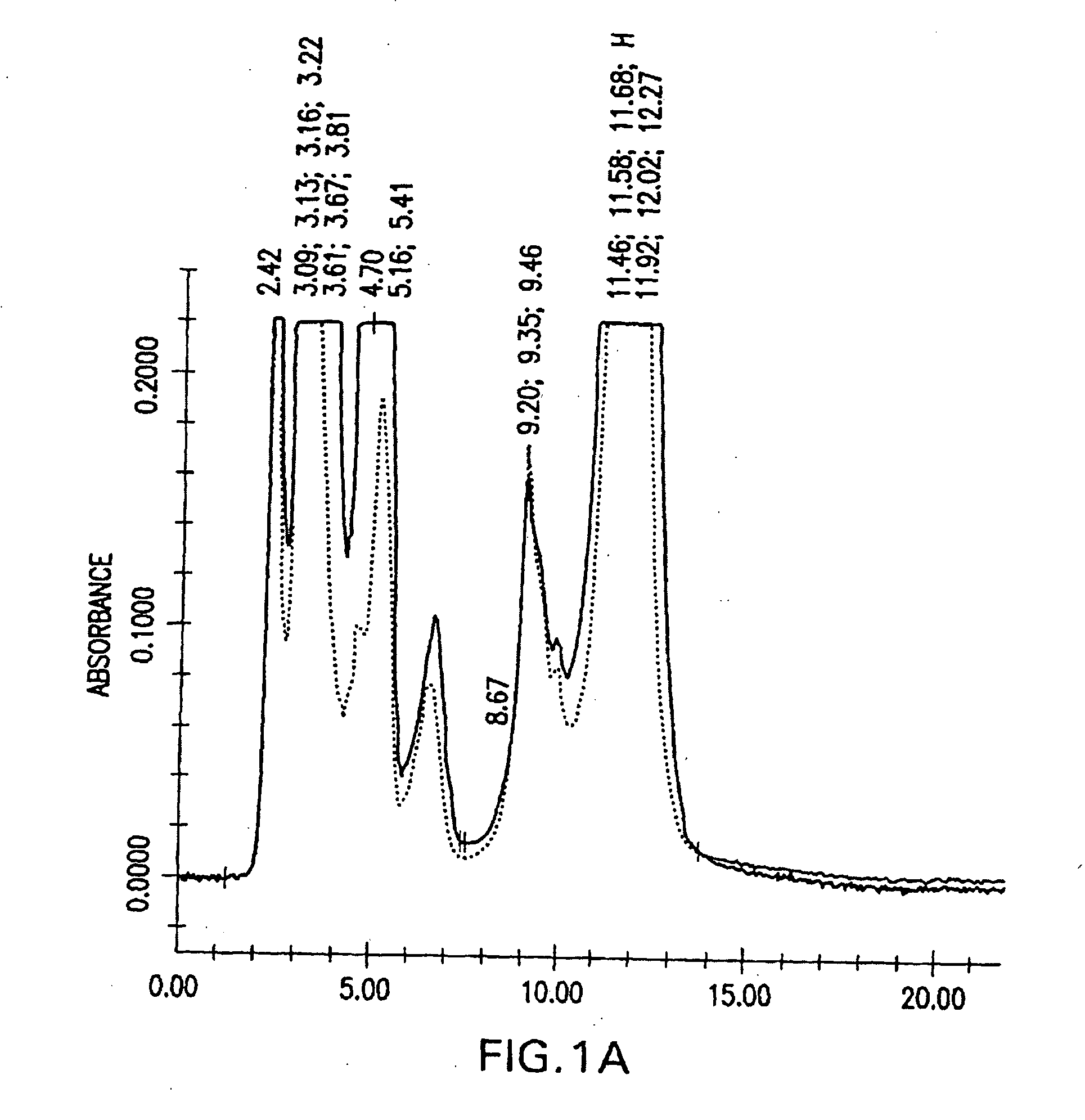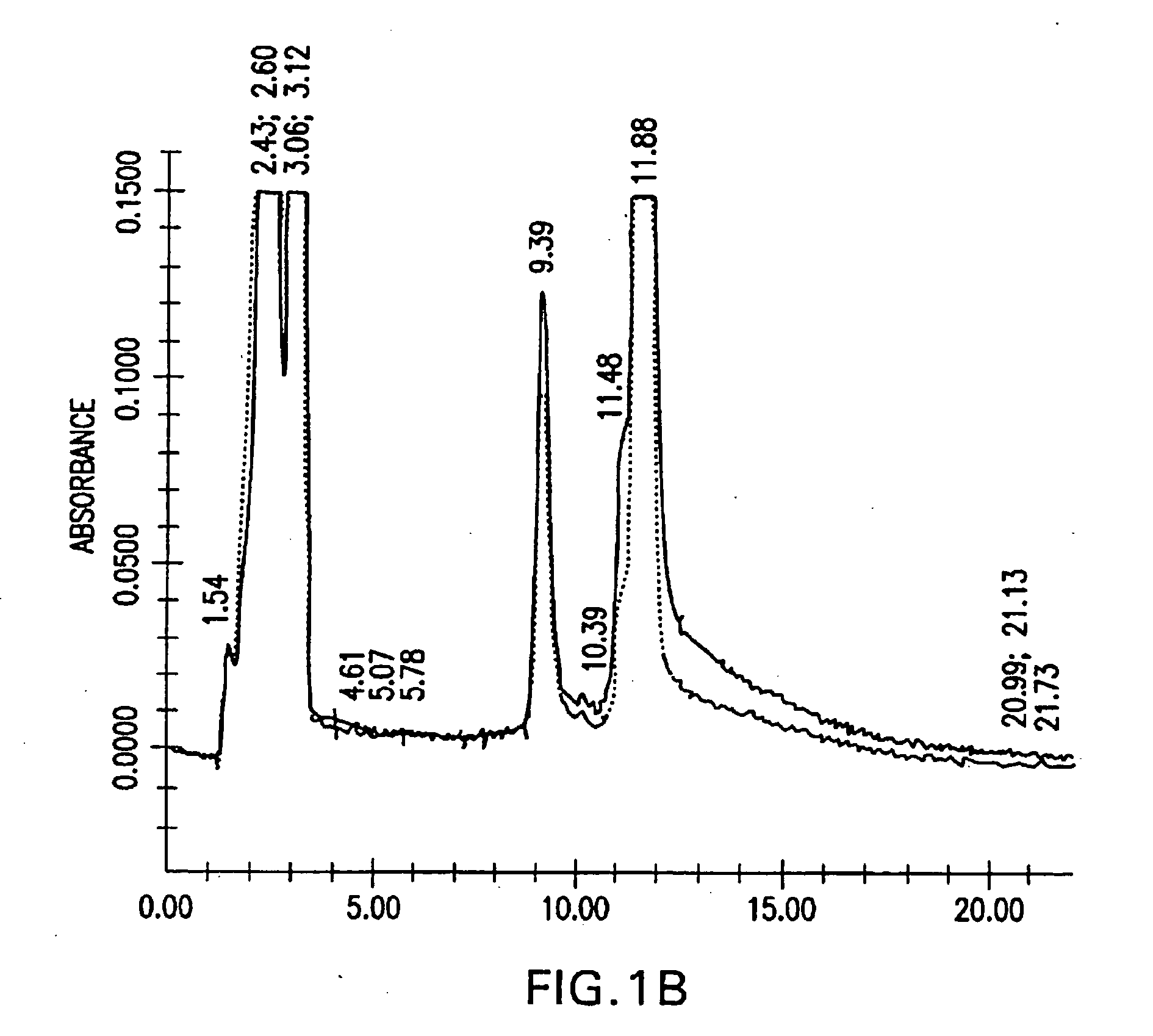Method for the production and purification of adenoviral vectors
a technology of adenoviral vector and purification method, which is applied in the field of cell culture and virus production, can solve the problems of inability to meet the demand for adenoviral vector for gene therapy applications, inability to produce the required amount of virus using this traditional process, and inability to meet the demand for adenoviral vectors
- Summary
- Abstract
- Description
- Claims
- Application Information
AI Technical Summary
Benefits of technology
Problems solved by technology
Method used
Image
Examples
example 1
Materials and Methods
[0260] A) Cells
[0261] 293 cells (human epithelial embryonic kidney cells) from the Master Cell Bank were used for the studies.
[0262] B) Media
[0263] Dulbecco's modified Eagle's medium (DMEM, 4.5 g / L glucose)+10% fetal bovine serum (FBS) was used for the cell growth phase. For the virus production phase, the FBS concentration in DMEM was lowered to 2%.
[0264] C) Virus
[0265] AdCMVp53 is a genetically engineered, replication-incompetent human type 5 adenovirus expressing the human wild type p53 protein under control of the cytomegalovirus (CMV) immediate early promoter.
[0266] D) Celligen Bioreactor
[0267] A Celligen bioreactor (New Brunswick Scientific, Co. Inc.) with 5 L total volume (3.5 L working volume) was used to produce virus supernatant using microcarrier culture. 13 g / L glass coated microcarrier (SoloHill) was used for culturing cells in the bioreactor.
[0268] E) Production of Virus Supernatant in the Celligen Bioreactor
[0269] 293 cells from master c...
example 2
Effect of Medium Perfusion Rate in Cellcube™ on Virus Production and Purification
[0291] For a perfusion cell culture system, such as the Cellcube™, medium perfusion rate plays an important role on the yield and quality of product. Two different medium perfusion strategies were examined. One strategy was to keep the glucose concentration in the Cellcube™≧2 g / L (high perfusion rate). The other one was to keep the glucose concentration ≧1 g / L (low medium perfusion rate).
[0292] No significant changes in the culture parameters, such as pH, DO, was observed between the two different perfusion rates. Approximately equivalent amount of crude viruses (before purification) were produced after harvesting using 1% Tween-20 lysis solution as shown in Table 5. However, dramatic difference was seen on the HPLC profiles of the viral solutions from the high and low medium perfusion rate production runs.
TABLE 5Effect of medium glucose concentration on virus yieldGlucoseconcentration (g / L)≧2.0≧1.0...
example 3
Methods of Cell Harvest and Lysis
[0294] Based on previous experience, the inventors first evaluated the freeze-thaw method. Cells were harvested from the Cellcube™ 45-48 hr post-infection. First, the Cellcube™ was isolated from the culture system and the spent medium was drained. Then, 50 mM EDTA solution was pumped into the Cube to detach the cells from the culture surface. The cell suspension thus obtained was centrifuged at 1,500 rpm (Beckman GS-6KR) for 10 min. The resultant cell pellet was resuspended in Dulbecco's phosphate buffered saline (DPBS). The cell suspension was subjected to 5 cycles of freeze / thaw between 37° C. water bath and dry-ice ethanol bath to release virus from the cells. The crude cell lysate (CCL) thus generated was analyzed on HPLC.
[0295]FIG. 2 shows the HPLC profile. No virus peak is observed at retention time of 9.32 min. Instead, two peaks at retention times of 9.11 and 9.78 min are produced. This profile suggests that the other contaminants having si...
PUM
| Property | Measurement | Unit |
|---|---|---|
| concentration | aaaaa | aaaaa |
| doubling time | aaaaa | aaaaa |
| diameter | aaaaa | aaaaa |
Abstract
Description
Claims
Application Information
 Login to View More
Login to View More - R&D
- Intellectual Property
- Life Sciences
- Materials
- Tech Scout
- Unparalleled Data Quality
- Higher Quality Content
- 60% Fewer Hallucinations
Browse by: Latest US Patents, China's latest patents, Technical Efficacy Thesaurus, Application Domain, Technology Topic, Popular Technical Reports.
© 2025 PatSnap. All rights reserved.Legal|Privacy policy|Modern Slavery Act Transparency Statement|Sitemap|About US| Contact US: help@patsnap.com



